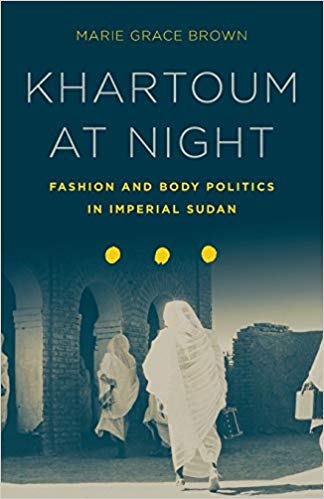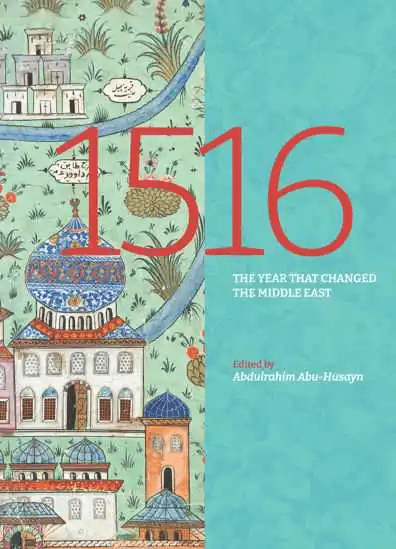
Khartoum at Night: Fashion and Body Politics in Imperial Sudan
Marina Ali
Marie Grace Brown
2017, Stanford UP, 9-781-50360-264-9, $22.50 pb.
This book about the influence of women’s fashion and clothing during Sudan’s colonial period is a timely study for today’s rapidly changing social climate. Marie Grace Brown provides a nuanced account of the impact of politics and economics on Sudanese women during the period of British colonial dominance, from 1899–1956, discussing how women used their clothes, shoes and even the spaces they occupied to effect change. She addresses topics such as women’s education and harems, explaining how they are meaningful aspects of Sudan’s history. She shows that seemingly benign things, such as marriage rites, hair braiding and childbirth, can have a significant impact on the national narrative. For example, there were marked differences in how Sudanese women gave birth before and after British occupation, which Brown asserts influenced the course of neonatal health for years to come. This intense reflection of Sudan’s history offers a fresh perspective on current events.
You may also be interested in...

Editor Challenges Readers To Witness Islamic History Sans the Modern Lens In New Book
In 1516, Ottoman Sultan Selim I entered Damascus clean-shaven. What followed changed Arab-Turkish relations for 400 years..png?cx=0.44&cy=0.65&cw=382&ch=487.6595744680851)
Zeina Abirached’s Art Uncovers Urgency of Wisdom in Gibran’s The Prophet
Kahlil Gibran’s 1923 classic is given new life, as Abirached’s graphic novel blends Lebanese artistry with the late author’s timeless wisdom.